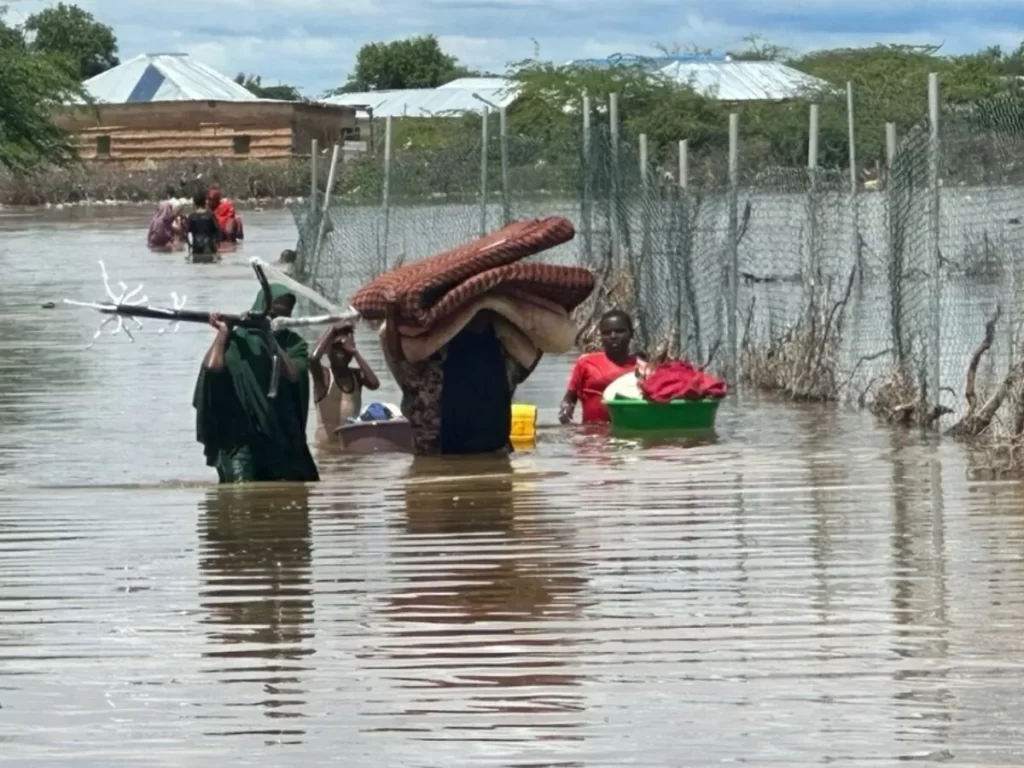
Floods in Somalia, Sudan cholera update, and genocide prevention
At least 820,000 people have been helped by the UN and partner humanitarian organisations, government, and communities, with at least 37 boats deployed to provide supplies or evacuate trapped people. The 2023 Humanitarian Response Plan for Somalia Floods, which calls for $2.6 billion to assist 7.6 million of Somalia’s most vulnerable people, is now just 42% financed.
Sudan has seen a significant increase in cholera cases.
Humanitarians and partners are also stepping up their response to the cholera outbreak in war-torn Sudan, according to the UN Spokesperson, who briefed journalists in New York on Monday. According to Stéphane Dujarric, this endeavour encompassed case detection and treatment as well as addressing water, sanitation, and hygiene issues. OCHA warns that the outbreak is worsening, with a 70% increase in reported cases over the last three weeks.
Almost 2.2 million oral cholera immunisations have been provided in the worst-affected states to date. According to the World Health Organisation and Sudan’s health ministry, “nearly 5,200 suspected cases of cholera have been registered as of today, including more than 160 deaths in Floods.” Since September 26, at least nine states have registered cases, according to Mr. Dujarric.
The fight between the national army and the rebel militia RSF has resulted in a severe deterioration in healthcare, with two-thirds of the population now lacking access and more than 70% of health institutions in conflict zones out of service. Since the beginning of the war in April, WHO has confirmed 60 attacks on healthcare institutions, which, as a reminder, violate International Humanitarian Law,” the Spokesman added.
Preventing genocide is as important as ever in the defence of human rights: Turk
“Early warning signs of genocide must compel us to act,” said UN human rights chief Volker Türk on Monday, speaking at a gathering commemorating the 75th anniversary of the Convention on the Prevention and Punishment of Crimes. He called it a “grave and urgent document” that was adopted on the eve of the Universal Declaration of Human Rights in December 1948, Floods making it the UN’s first human rights convention.
“Important lessons of the Holocaust, whose indescribable crimes led to the Convention – and the lessons of Cambodia, Rwanda, the former Yugoslavia, and others – made it absolutely clear that preventing genocide, and bringing its perpetrators to account before all humanity, is essential to the work of advancing human rights” , said the UN High Commissioner for Human Rights.
He emphasised that preventing genocide was a “overriding principle” for all humanity, not merely a legal issue. The Convention urges all states and citizens to be vigilant and to take measures to prevent and punish genocide.
According to him, genocide is “never unleashed without warning.” It is always the culmination of previous and recognised patterns of systemic discrimination based on race, ethnicity, religion, or other traits, as well as egregious human rights violations directed as a matter of policy against a people; minority; community.”
Genocide frequently feeds on dehumanising and demonising public pronouncements, and today’s disinformation efforts on social media can reinforce these statements, until condoning and excusing killing becomes normalised.” He stated that greater internet governance is “absolutely critical” in preventing genocidal activity in the digital arena. Second, accountability is required, “not just because it delivers justice for victims, but because accountability is vital to ending genocide…Impunity facilitates genocide. Accountability is its archenemy.” Mr. Türk asked those countries that have yet to ratify or accede to the Genocide Convention to do so as soon as possible in order to “protect our common humanity.”
